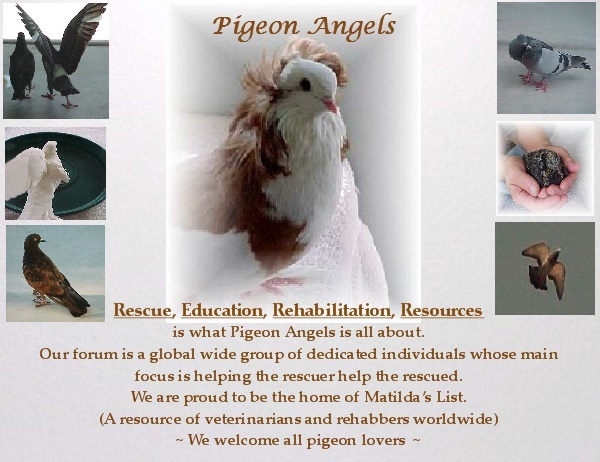Bad Food
By Dr Colin Walker BSc, BVSc, MRCVS, MACVSc (Avian health)
Many pigeon fanciers contact our clinic stating that they think there is a problem with their pigeon feed and that this is contributing to the birds poor race performance or poor health generally. Yet, when we send the samples they supply away to an accredited lab for accurate testing the grain is fine. In the hundreds of samples sent for accurate testing over the years not one sample has come back with a problem.
To test whether grain poses a risk to a pigeon’s health is an involved procedure that is best done by an accredited laboratory. The important thing to measure is the amount of fungal toxin in the grain. Every sample we have sent for testing has shown less than 5 parts per billion of fungal toxin. This is the lowest detectable level, is as good as it gets and is fine for human consumption.
My grain has gone mouldy?
This is something that is commonly stated when fanciers ring. This has no relevance. Fungal spores are everywhere – all over this magazine, you, and the food you eat. When given the opportunity they will germinate and form a mould. Even if the best quality food is kept warm and wet for several days mould will start to grow. The presence of these spores has no effect on health. This can be confirmed by speaking to a grain expert at any testing lab (e.g. ‘Agifood’ – ph. 03 9742 0555).
My birds droppings have gone mouldy
This usually just means that the droppings have not dried out and fungal spores have been given the opportunity to germinate. Often through winter droppings don’t dry out through the day if left in the loft and after several days will do mouldy. This is not an indication of poor seed quality. Droppings however should be removed from the loft before they go mouldy as moulds will release spores into the loft and if inhaled can damage the airsacs.
How does the fungal life cycle work?
Moulds are a type of fungi which are in-turn a type of plant. Mould produce fruiting bodies (similar to the flowers of other plants) that release spores (similar to the seeds of other plants) into the environment. As stated these spores are everywhere. Like different types of seeds, different types of spores require different temperatures and degrees of dampness to grow but when they get in the right particular situation for them they will germinate and grow into a new plant that is another mould. Most spores like warm damp conditions to grow. This is why human food that is taken out of the fridge and left on the bench or ,for that matter, pigeon seed that is kept damp goes mouldy. The spores on the surface simply find themselves in the right situation for them to grow. When the spores haven’t germinated they are inert and do not pose a health problem if ingested. However as the spores germinate and grow into a mould some produce poisons. It is these poisons that can interfere with health. In this way seed with spores on it is not a problem but seed with mould is. This is why tests that show that the seed has spores on the surface has no relevance but tests that measure fungal toxin levels do. If seed is kept wet and goes mouldy, all you have done is demonstrate the presence of spores on the seed and this doesn’t mean a thing.
If you want your seed tested ensure that the fungal poison (or toxin) level is measured. No local vet in Australia can do this. Because the test takes time and requires expensive and sophisticated laboratory -only equipment the test is not cheap. Most labs charge over $100 which is why this test is best done by the grain supplier rather than the fancier.
What should a fancier do? Visually check the grain – This should be done at purchase. Grain that has visible weevil damage, appears dusty, has visible water stains, smells musty or appears generally dirty or broken should not be purchased.
Check with the supplier – Ask the supplier if the grain batch has been tested. He may in-turn have to check with his supplier.
Store purchased seed well – Cool, dry places are best.
Consider testing – If concerned ,have the seed properly tested i.e. organise through your veterinarian or directly with a lab to have a fungal toxin level done. Remember simply keeping seed warm and wet and demonstrating it’s ability to grow mould is a bogus test.
Don’t jump to conclusions and blame the food – Blaming the food is too easy at times and often means the real cause of poor performance or ill health is overlooked.


